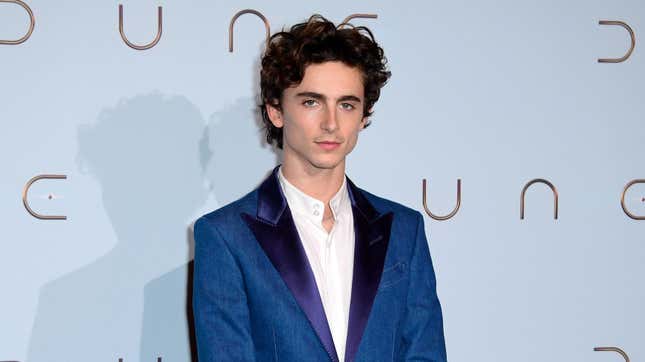Why Ask Timothee Chalamet About the Armie Hammer Rape Accusations?
This is less about Chalamet's actual opinion and more about how good his PR team is.
Celebrities

Timothee Chalamet has offered a response of sorts to the sexual assault allegations against his Call Me By Your Name costar, Armie Hammer. But it doesn’t help answer the question of whether anyone would really benefit from his take on the topic in the first place.
In a new profile for Time, Chalamet reportedly “demurred” when Hammer was brought up. He said, “I totally get why you’re asking that, but it’s a question worthy of a larger conversation, and I don’t want to give you a partial response.”
-

-

-

-

-

-

-

-

-

-

-

-

-

-

-

-

-

-

-

-

-

-

-

-

-

-

-

-

-

-

-

-

-

-

-

-

-

-

-

-








































